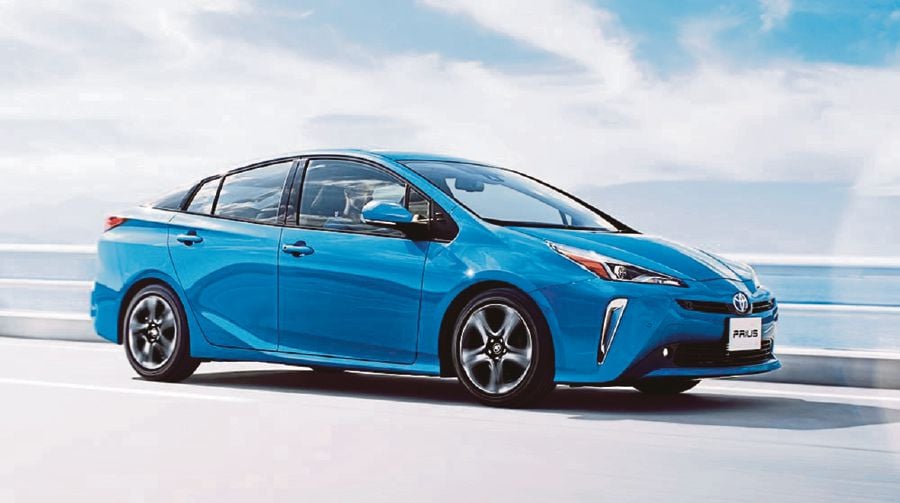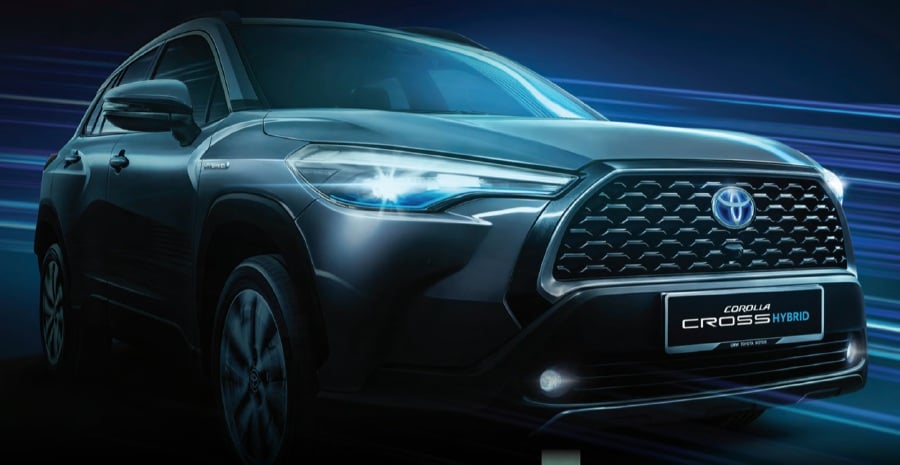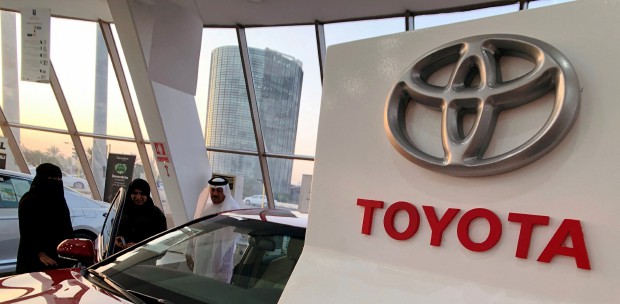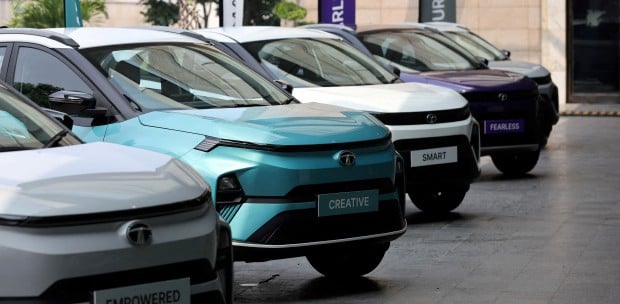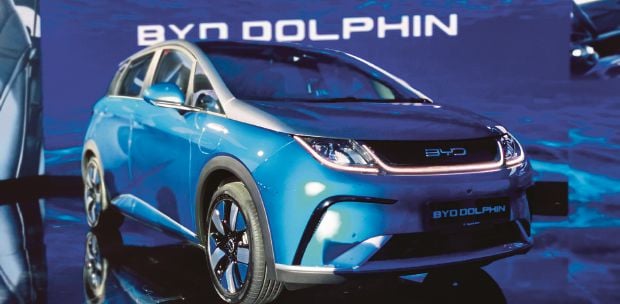THE automotive world is split in how it plans to cut carbon emissions.
One side is pushing electric vehicles (EVs), in particular battery electric vehicles (BEVs), as the definitive solution towards a greener tomorrow.
The other side, however, believes that the price to pay is too heavy for relatively little gain and wants to find another way.
It is argued that while BEVs certainly have their benefits, some carmakers and countries feel that rushing a full platform transition is not only detrimental but also impossible.
The greatest challenge remains cost investments.
Cars Bikes and Trucks recently highlighted that a shift to BEVs could not happen if the general public wasn't buying them in numbers. This issue alone poses the biggest challenge for the industry.
EVs are more expensive to assemble over the traditional internal combustion engine (ICE) setup. There's also the accompanying infrastructure such as charging stations as well as charge time to consider.
We had talked about how a new technology was always expensive at first before becoming more affordable down the line with time. Yet there is no timeframe as to when this will happen.
First world countries and premium automotive brands are setting their own deadlines to achieve carbon neutrality but this is unfair to emerging countries, let alone poorer nations, who rely on mass market products to be held to ransom.
Thus, a number of Japanese carmakers recently made a pact to fight the EV trend, citing how the sudden switch would greatly affect their local market.
Toyota, Mazda, and Subaru have announced their intention to save ICE vehicles as they explore alternative options to reduce carbon emission without going on the electrification route.
Kawasaki and Yamaha announced their intention to further look into hydrogen engine development.
Toyota has made its stance known over the years that it doesn't believe that BEV is the way to go.
Recently, it again defended its decision not to sign an emissions pledge proposed at the United Nations Climate Change Conference (COP26), saying its global business made the commitment "difficult".
Toyota ZEV Factory general manager Kohei Yoshida reportedly said the group's dedicated zero-emissions vehicle division believed that there were "many ways to approach carbon neutrality".
"It's very important to make sure that we have all countries and regions, different environments and different places in mind," he said, adding that it would take time to establish the infrastructure for electric, battery and fuel-cell vehicles in developing economies such as those in Africa and Latin America.
HYBRID TECHNOLOGY
While most parties have agreed that the hydrogen engine is too pricey at present and require more investments to further develop it for general market use, Japanese carmakers believe that using and improving an existing technology makes more sense.
UMW Toyota Motor (UMWT) said hybrid technology had proven to be reliable and unlike fully BEVs, did not require additional public infrastructure.
Therefore, it is "ideal for Malaysia at this stage of its journey towards electrification".
The company recently announced the local assembly of the Corolla Cross model, which uses the hybrid electric vehicle (HEV) technology.
UMWT deputy chairman Akio Takeyama said this technology had been developed, improved on and refined since the late 1990s, when the company introduced the world's first mass-produced passenger car with a hybrid electric powertrain.
Toyota currently has 45 HEV models available globally as of last year. It has sold more than 18.1 million hybrid vehicles to date, with two million last year alone.
By comparison, it has only sold 17,000 units of its hydrogen fuel-cell Mirai car since its launch in 2014.
"The local assembly of the new Toyota Corolla Cross Hybrid is another major milestone in Toyota's long history in Malaysia. The Corolla contributed to the motorisation of the country when it was first introduced in the 1960s, and now with the Corolla Cross Hybrid, Toyota is contributing to the country's transition towards the era of electrification."
Takeyama said the company's assembly of HEVs in Malaysia was timely as it supported the government's commitment to reduce greenhouse gas emission by 45 per cent in 2030 - a pledge made at the 2021 United Nations Framework Convention on Climate Change (COP26) in Scotland.
He said the use of vehicles with hybrid electric technology would not only reduce carbon dioxide emissions but also generate extremely low oxides of nitrogen, another air pollutant.
"In Malaysia, hybrid electric technology is the most suitable and Toyota offers the best because we have been developing it since the late 1990s."
SUPPORTING THE CAUSE
UMWT president Ravindran K. said the company was pleased with the government support given to the automotive industry with two key provisions announced in the 2022 Budget.
He said the continuation of the sales tax exemption until June next year would help the sales momentum.
"We believe that the full exemption on duties, sales tax and road tax for EVs will allow them to be priced more attractively.
"The income tax relief of up to RM2,500 for individuals who incur expenditures on facilities related to EVs as well as EV usage will also encourage more Malaysians to switch to EVs."
COROLLA CROSS HYBRID
Toyota's Corolla Cross Hybrid, a crossover sport utility vehicle (SUV), will be the company's first locally assembled model utilising HEV technology.
This variant will be assembled at the ASSB plant in Bukit Raja, Selangor, alongside two other Corolla Cross variants - the 1.8V and 1.8G.
When first introduced in Malaysia, they were imported from Thailand.
"This is a major milestone for Toyota in Malaysia. We are excited about launching the first locally-assembled Toyota model with HEV technology. Assembling it locally means more attractive and affordable pricing," said Ravindran K.
The Corolla Cross Hybrid's powertrain employs Toyota's fourth-generation Hybrid Electric System.
This consists of a 1.8-litre petrol engine with a power output of 72kW/98PS at 5,200rpm with 142Nm of torque at 3,600rpm, and an electric motor that produces 53kW (72PS) and 163Nm of torque that is available from almost idling speed.
Paired to an E-CVT, four drive modes - Sport, Eco, Normal, and EV - can be selected to optimise the driving performance.
As with most of the latest Toyota models, the Corolla Cross uses the Toyota New Global Architecture, which allows for more design and engineering flexibility.
The eye level of the driver can be 121mm higher, as with ground clearance that is 161mm higher than that of the Corolla sedan. It has a best-in-class 5.2m turning radius as well.
The locally assembled versions are also enhanced with new features.
The 1.8G has Bi-LED headlamps with LED daytime running lights that employ a light curtain design like the 1.8V. A roof rail is now included as standard to add to the sporty and adventurous image.
The cabin holds a nine-inch touchscreen display infotainment system that's Apple CarPlay and Android Auto ready, with two Type-C USB points for charging and the choice for an optional wireless charger pad.
Cabin noise has also been reduced through the use of windshield glass with better insulation as well as a bonnet silencer. Rear passengers also get to enjoy additional air vents.
The Corolla Cross 1.8V and 1.8 Hybrid variants come with Toyota Safety Sense 2.0 that includes the pre-collision system, lane departure alert with steering assist, lane tracing assist, dynamic radar cruise control and automatic high beam.
The accompanying safety technologies include blind spot monitor with rear cross traffic alert, 3D panoramic view monitor, driver start control and a tyre pressure warning system.
A front driving video recorder (DVR) comes as standard and customers can also choose to add a rear-mounted DVR.
The SUV, with a maximum Asean NCAP five-star safety rating, has seven SRS airbags around the cabin (including one for the driver's knees) and ISOFIX points (with tether anchor) for the rear seats.
The Corolla Cross 1.8 Hybrid is priced from RM137,000 (estimated on-the-road price inclusive of sales tax but without insurance).
It comes with an exclusive Celestite Grey Metallic colour option, on top of the already available Platinum White Pearl, Red Mica Metallic, Nebula Blue Metallic and Silver Metallic.
The 1.8V variant is priced from RM129,000 while the 1.8G starts from RM123,000.
They come with a five-year factory warranty with unlimited mileage. The Hybrid battery pack has a separate warranty of eight years.
A Vehicle Telematics System (VTS) is installed for additional protection of the vehicle from theft and allows the vehicle to be tracked using GPS/GSM networks.


